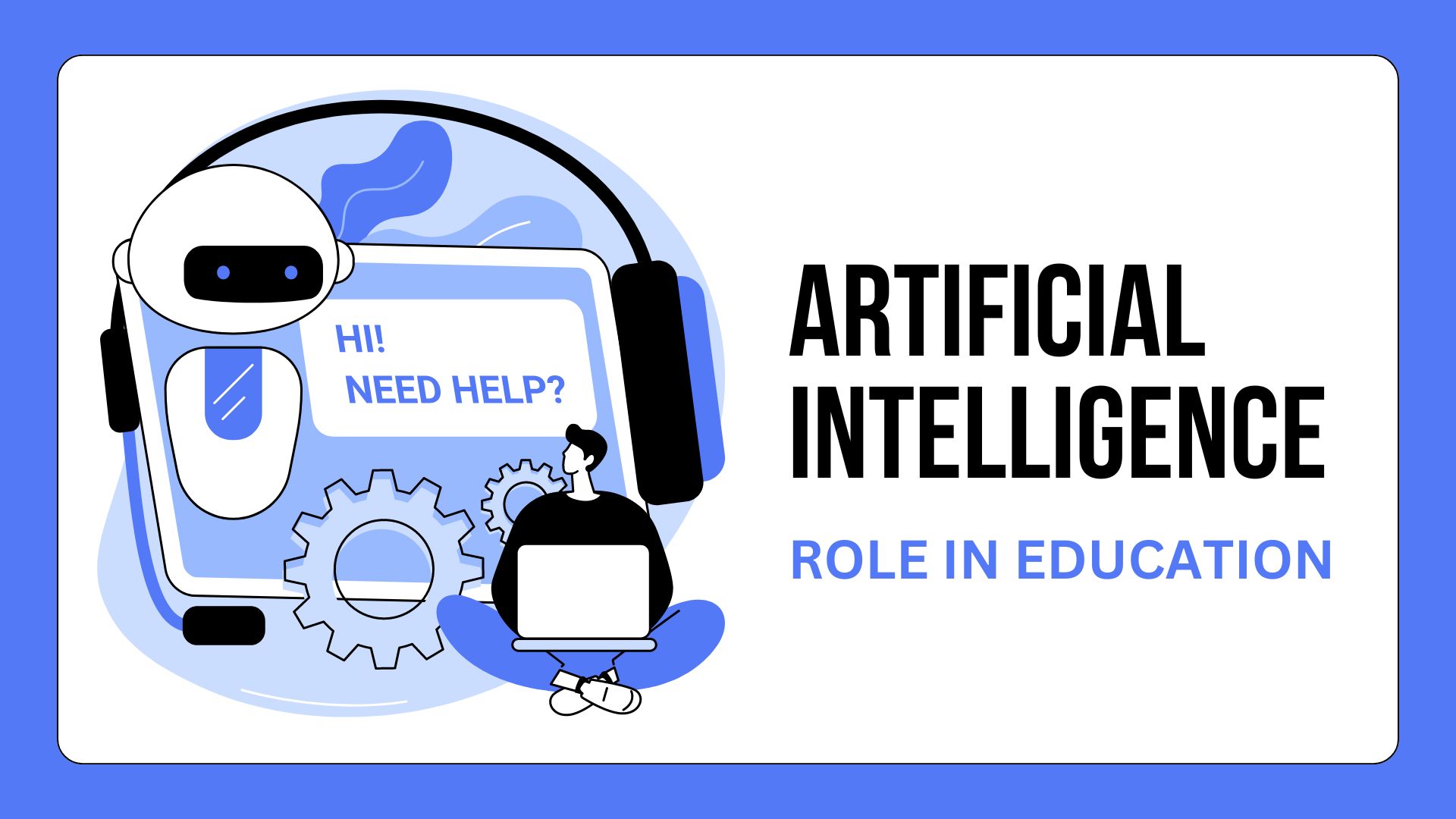The Role of Artificial Intelligence in Education
Artificial Intelligence (AI) is rapidly transforming various sectors, and education is no exception. The integration of AI into educational systems offers numerous opportunities to enhance learning experiences, improve administrative efficiency, and provide personalized education. This blog explores the role of artificial intelligence in education, highlighting its benefits, challenges, and future implications.
How AI is Revolutionizing Education
- Personalized Learning
One of the most significant contributions of AI to education is the ability to provide personalized learning experiences. AI-driven systems can analyze individual student data, including learning styles, strengths, and weaknesses, to tailor educational content and pacing. This customization helps students learn at their own pace, making education more effective and engaging. - Automated Administrative Tasks
AI can streamline administrative processes, allowing educators to focus more on teaching and less on paperwork. For instance, AI can automate tasks such as grading assignments, scheduling, and managing student records. This efficiency not only saves time but also reduces the likelihood of human error. - Intelligent Tutoring Systems
Intelligent Tutoring Systems (ITS) use AI to provide real-time feedback and support to students. These systems can mimic the guidance of a human tutor, offering hints, explanations, and additional resources based on a student’s responses. This immediate feedback loop helps students understand concepts more deeply and quickly. - Enhanced Accessibility
AI technologies can make education more accessible to students with disabilities. For example, speech-to-text and text-to-speech software can assist students with hearing or visual impairments. Additionally, AI can translate educational materials into multiple languages, breaking down language barriers and reaching a global audience. - Data-Driven Insights
AI can analyze vast amounts of educational data to provide insights into student performance, curriculum effectiveness, and teaching methods. These insights can help educators make data-driven decisions, identify areas for improvement, and implement strategies that enhance learning outcomes.
Benefits of AI in Education
- Efficiency and Accuracy: AI can handle repetitive tasks with speed and precision, reducing the administrative burden on educators and increasing overall efficiency.
- Personalization: By adapting to individual learning needs, AI can create a more personalized and engaging educational experience.
- Scalability: AI solutions can be scaled to accommodate a large number of students, making high-quality education accessible to more people.
- Continuous Learning: AI systems can provide continuous learning opportunities, allowing students to learn at any time and place, beyond the traditional classroom setting.
Challenges and Considerations
While the role of artificial intelligence in education offers many benefits, there are also challenges to consider:
- Privacy and Security
The use of AI in education involves the collection and analysis of large amounts of student data. Ensuring the privacy and security of this data is crucial to protect students’ personal information and maintain trust. - Bias in AI Algorithms
AI systems can inadvertently perpetuate biases present in the data they are trained on. It is essential to develop and implement AI algorithms that are fair and unbiased, providing equal educational opportunities to all students. - Dependency on Technology
Over-reliance on AI and technology can lead to a reduction in human interaction, which is a critical component of the educational experience. Balancing the use of AI with traditional teaching methods is essential to maintain a holistic approach to education. - Access and Equity
Not all students have equal access to the technology required to benefit from AI-enhanced education. Addressing issues of digital equity is essential to ensure that all students can access the advantages of AI in education.
The Future of AI in Education
As technology continues to advance, the role of artificial intelligence in education is expected to expand. Future developments may include more sophisticated AI-driven educational platforms, enhanced virtual reality (VR) and augmented reality (AR) learning experiences, and even AI-powered lifelong learning companions.
Educational institutions, policymakers, and technology developers must work together to harness the potential of AI while addressing its challenges. By doing so, they can create an inclusive, equitable, and innovative educational landscape that prepares students for the future.



Leave a Reply